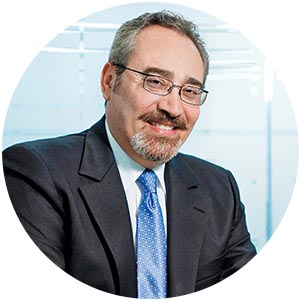Abu Dhabi Islamic Bank was the first Islamic bank established in Abu Dhabi, in 1997, and has evolved to become one of the largest retail banks in the United Arab Emirates, with one of the strongest digital footprints of any bank in the UAE. ADIB increased full-year net profits by 10.5% in 2015 to reach 1.9 billion dirhams ($520 million). Global Finance sat down with ADIB’s CEO at the bank’s head office in Abu Dhabi.
Back To Supplement

Global Finance: The fall in oil prices will have a bearing on the UAE economy. What challenges does the UAE banking sector face?
Tirad Al-Mahmoud: This region has seen low oil prices in the past—the price of oil is probably the most sensitive commodity to political events. We think oil prices will recover by the end of this year. The UAE market has a lot of non-oil sectors in the economy—for example, tourism and shopping—and those remain resilient.
With a smaller (budget) surplus the sovereign wealth fund has less to invest abroad, and that is where the impact will be. In the domestic economy, changes will be insignificant. We are seeing a lot of money coming back into the economy, and banks do not have an issue with liquidity. At ADIB we have always been the most liquid bank.
GF: Would it be fair to say that ADIB has a “digital first” strategy?
Al-Mahmoud: We look at all financial institutions, also those trying to become financial intermediaries, like Google, to determine our digital banking strategy. We are not a first mover but a fast follower. We decided not to be a first mover as the error rate is extremely high, but we want to be the number-one digitally enabled financial institution. The biggest future opportunities for digital financial services will be youth, the unbanked and underbanked sectors.
GF: How will you deepen the digital experience?
Al-Mahmoud: We have the best mobile-banking service in the country, (but) we want to do business with people using “dumb” phones. Smartphones are very expensive, and the youth or unbanked sectors cannot afford smartphones.
GF: Critics of Islamic banking say differing standards of interpretation and regulation prevent it from becoming an important player in global financial markets.
Al-Mahmoud: In conventional banking there are different laws in different countries, for example between the UK and Germany, so why would Islamic banking be any different? The fundamental weakness Islamic banks have is that they are restricted to asset-based finance. That is the issue.
GF: Last year you raised 504 million dirhams ($137 million) from a rights issue. Do you plan to tap the markets again this year?
Al-Mahmoud: We have a program to raise equity that will continue to 2018, but the timing is important. We would like to issue shares when it is good for everybody, but right now the stock market is not doing great.
GF: Last year you said you were considering entering markets in Southeast Asia. Is geographic expansion still on the table?
Al-Mahmoud: It is still a target, but I don’t think the values are there yet. Asia has good growth potential, and it could be a greenfield opportunity if it is for corporate banking. If it is related to individual banking, it will be by acquisition.
GF: Analysts predict that Iran’s access to international banking could be a boost to Islamic finance?
Al-Mahmoud: Iran is an Islamic banking market anyway. We will go to Iran when it is clear that all sanctions have been lifted—we would like to see them as part of the regional trade community.



